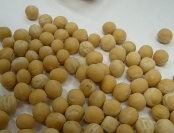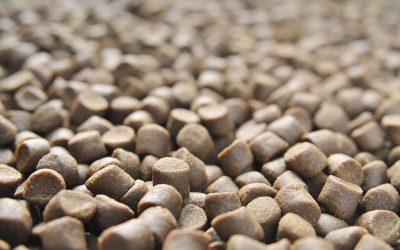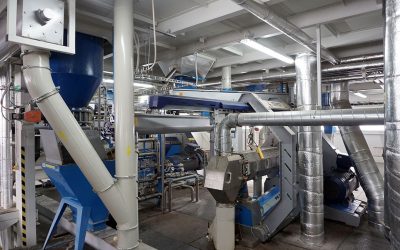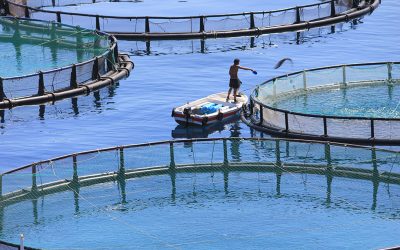Extrusion damages protein value of peas, improves starch digestion

Researchers Al-Mazooqi and Wiseman of Nottingham University studied the effects of extrusion on the nutritional value of peas in young broilers.
The objective of the experimental programme was to examine the influence of extrusion of peas under controlled temperature and moisture conditions on coefficient of ileal apparent digestibility (CIAD) of amino acids.
Also the changes to starch structure (crystallisation) and subsequent effects on CIAD of starch in young broilers were examined.
Experiment 1
Experiment 1 used one pea cultivar (2.94 mg trypsin inhibitor units (TIU)/g DM) processed under two extrusion temperatures (exit temperatures of 70 and 140°C) and two moisture levels (0 and 1.96 ltr water added/h) giving a 2×2 factorial design (with a 5th treatment being the raw pea sample).
All pea samples were added at a rate of 500 g/kg into a purified diet where peas were the only source of protein/amino acids.
Processing generally led to a reduction in CIAD of amino acids but CIAD of starch for Raw, Treatments 1 and 3 (added water) was lower than that for Treatments 2 and 4 (no water) with data of 0.730, 0.808 and 0.759 vs. 0.852 and 0.834, respectively.
Experiment 2
Experiment 2 evaluated two near-isogenic lines of peas (HA5 and HB5) processed under the same conditions as for Experiment 1.
Extrusion at 70°C/addition of water had no significant effect on trypsin inhibitor activity but the inhibitor was eliminated at 140°C with or without addition of water (P<0.001).
Pea line HA5 generally had higher CIAD than HB5 (P<0.05 for cystine, lysine, leucine, histidine, alanine; P<0.01 for threonine).
There were significant temperature × water addition interactions for CIAD. For example, data for lysine were 0.760, 0.828, 0.860 and 0.759, respectively for 140°C/no water, 140°C/1.96 l/h, 70°C/no water and 70°C/1.96 l/h.
CIAD for starch improved following processing, attributed to the loss of crsytallinity.
The data indicate that peas are sensitive to high processing temperatures which are associated with a reduction in nutritive value, in terms of amino acid digestibility, for young poultry.
In contrast, the results reinforce the adverse effect of crystallinity on starch digestibility and show that extrusion in the absence of water improves the digestibility of raw starches due to granular disorganisation and changes in crystallinity.
The full report can be obtained from here from ScienceDirect.











